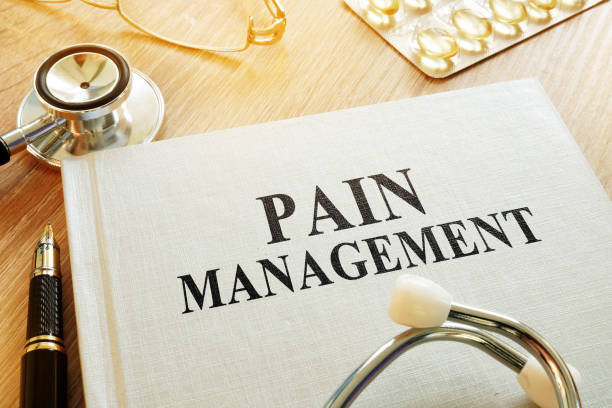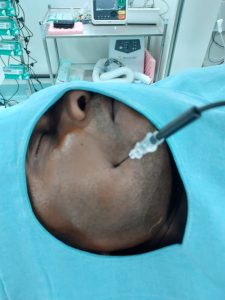When any pain persists beyond its normal time of healing which is usually 2-3 months, then it is called as chronic pain. Chronic pain can be pain from arthritis of joints, spinal pain like slip disc, sciatica, facet joint or sacroiliac joint problem, shoulder pain, nerve pain, cancer pain, headache or facial pain and chronic postsurgical pain. Various epidemiological surveys around different parts of the world have found that on an average 25-33% people suffer from chronic pain for various reasons.

The impact of chronic pain is higher than combined disease of hypertension, diabetes and heart disease which are considered life-style diseases. People in generally focus more on heart diseases and diabetes but ignore chronic pain. Long-standing pain has significant health burden, including impact of economy, and quality of life. Hence, chronic pain in itself is a disease state whereas acute pain is a symptom.
Considering our huge population, some 30-35 crore populations is suffering from chronic pain- be it arthritis, spinal pain, nerve pain, cancer pain, musculoskeletal pain, rheumatic pain, or postsurgical pain. To make matters worse, there is very little focus on chronic pain as a “disease state” and often ignored as “it is in your head”. Furthermore, awareness among general public about various degenerative musculoskeletal disease conditions like degenerative disc disease, knee osteoarthritis is very poor.
What is the role of Pain Clinic or Pain Physicians?
Considering the gravity of chronic pain situation, the need of specialized doctors to diagnose and manage pain was realized long ago. Hence, a specialty known as “Pain Medicine” or Pain management” was born more than 4 decades ago. So, doctors practicing Pain Medicine or Pain management have usually done 1 to 3 years of specialized pain training following their post-graduation.

So, it is essentially a super specialty subject like Neurology, Nephrology, Cardiology or Neurosurgery. Foot pain management specialist are well versed with the neurobiology, pathophysiology of pain, its assessment, making an accurate diagnosis, formulating treatment, providing adequate pain relief, and helping patients recover functionally. Pain Specialists understand the pain better than any other specialists although pain is managed by almost every doctor as pain is perhaps the commonest symptom that brings the patient to a doctor.
How are Pain Specialists different from others?
Let’s talk about one of the commonest pain problem that affects us- low back pain. The cause of back pain is variable for a young adult to a middle age person and even an old person. But for many general public, all feel it is spondylitis without even knowing what exactly it is. Another cause of back pain is slip disc or sciatica but hardly anybody knows what exactly happens in slip disc. Lot of people come with MRI and tell us that a vein is compressed at L4 or L5 level. The whole essence is there is lack of complete awareness on subjects of health despite bloom in internet and plethora of information in You Tube, internet and various social media. Another problem is many people suffer with long-standing back pain fearing surgery advised by doctors. It is important to note that surgery is not needed in a vast majority of patients suffering from low back pain or spinal pain barring few indications. It rather understands the condition, improving posture, maintaining healthy body weight, adequate nutrition, regular exercise and seeking early consultation helps in many chronic pain conditions and even in spondylitis or sciatica.

As far as chronic pain is concerned many think that pain killer medicines, physiotherapy or surgery are the treatment modalities. But there is a missing link in the above traditional think-tank. It is known as “interventional pain management” which we Pain Specialists perform in our OPD or in OT under image guidance. Just imagine a cardiac stent placement by Cardiologists in patients with heart attack. This is done with a needle puncture either at wrist or groin instead of open heart bypass surgery which is a major surgery. Our “interventional pain management” involves a similar thing. For many pain conditions ranging from arthritis, sciatica, tail-bone pain, trigger finger, frozen shoulder, nerve pain, tennis elbow or heel pain it is best done with percutaneous interventions, i.e., without surgery.
Surgery is needed in advanced spine conditions, and advanced arthritis with deformity. In many cases, interventional pain management followed by physical therapy, posture care, good nutrition, patient education and rehabilitation goes a long way in relieving pain and restoring function. The interventions are usually known as “injection therapy” to common people. There are by no means intramuscular (i.m) or intravenous (i.v) therapy, rather specialized minimally-invasive targeted injection or interventions done at lumbar spine or disc level, spinal joints where radiofrequency ablation is done. All these are done under X-ray machine guidance in OT or ultrasound guidance to ensure exact and accurate delivery of the medications. Many joint, tendon, nerve and ligament related pain conditions are better diagnosed with ultrasound and targeted treatment done by ultrasound guidance by the pain specialist in the pain clinic these days. Most of the procedures are day care and patients are discharged same day.
Another fascinating and rapidly growing treatment modality for pain management is regenerative therapy. That means in many degenerative diseases like knee arthritis or even chronic wear and tear pain conditions like tennis elbow, plantar fasciitis heel pain or even shoulders rotator cuff tendon or other ligament sprains or tears, patients own blood can heal and help in forming new tissue. This is called platelet-rich plasma (PRP) which is prepared patients own blood and injected into damaged knee, torn tendons leading to formation of new tissue. All these have emerged as an alternative to surgical treatment and have given a new hope to many chronic pain patients.

We, pain physicians provide treatment for cancer pain and even nerve related debilitating pain conditions like carpal tunnel syndrome or trigeminal neuralgia very effectively without any surgery.
We all know that chronic pain in itself is a disease and the need of the hour is adequate education and awareness among general public on various conditions, their risk factors, home remedies and preventive strategy. Although many chronic pain conditions can’t be prevented but the severity can be reduced with proper education and awareness. It is high time people stop ignoring pain and resort to over the counter pain killers. Consult a Pain Specialist early so that chronicity can be prevented.
For More information consult a Pain Management Specialist


